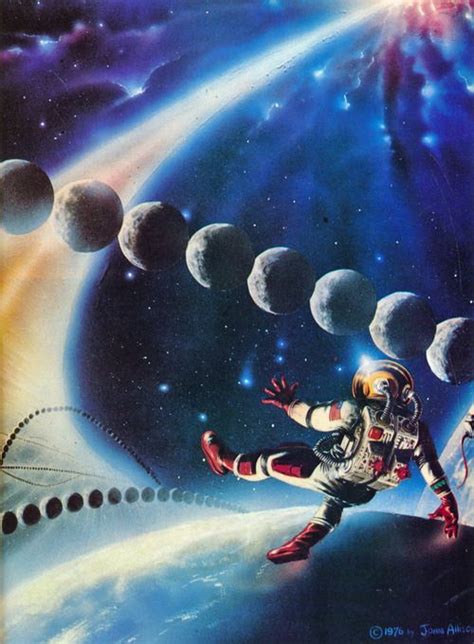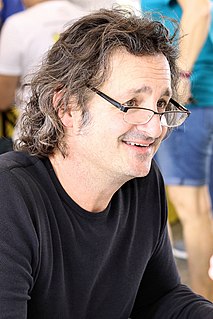A Quote by Hank Green
I spent my youth reading books in which corporations became governments, it's an old idea in science fiction.
Related Quotes
I guess...on one hand, I spent way too much time watching science fiction and reading science fiction when I was growing up. But a part of it is I also never felt much of a connection to the world in which I lived while I was growing up, and so, oddly enough, I think I felt a lot more connected to the worlds that I read about in science fiction.
I often use detective elements in my books. I love detective novels. But I also think science fiction and detective stories are very close and friendly genres, which shows in the books by Isaac Asimov, John Brunner, and Glen Cook. However, whilst even a tiny drop of science fiction may harm a detective story, a little detective element benefits science fiction. Such a strange puzzle.
My platform has been to reach reluctant readers. And one of the best ways I found to motivate them is to connect them with reading that interests them, to expand the definition of reading to include humor, science fiction/fantasy, nonfiction, graphic novels, wordless books, audio books and comic books.
I vowed to myself that when I grew up and became a theoretical physicist, in addition to doing research, I would write books that I would have liked to have read as a child. So whenever I write, I imagine myself, as a youth, reading my books, being thrilled by the incredible advances being made in physics and science.
While the emphasis on effects became a catastrophe for science fiction, it was a relief for the capitalist culture of which 'Star Wars' became a symbol. Late capitalism can't produce many new ideas any more, but it can reliably deliver technological upgrades. But 'Star Wars' didn't really belong to the science fiction genre any way.
When I was thirteen, I was in a supermarket with my mother, and for no reason at all, I picked up a science-fiction book at the checkout stand and started reading it. I couldn't believe I was doing that, actually reading a book. And, man, it opened up a whole new thing. Reading became the sparkplug of my imagination.



































